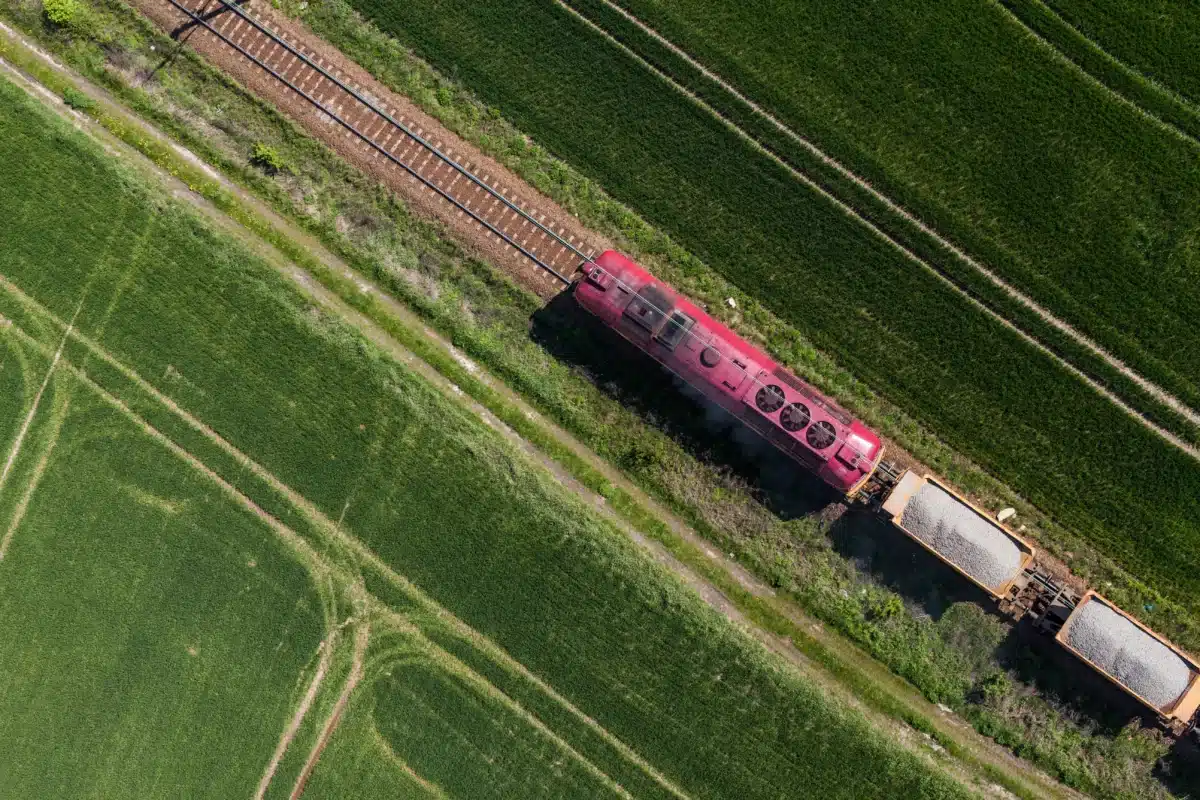ARLINGTON, VA – In testimony submitted to the House Agriculture Committee on Wednesday, The Fertilizer Institute (TFI) President & CEO Corey Rosenbusch highlighted the global nature of the fertilizer market and its critical role in feeding the world’s growing population.
“First of all, the fertilizer industry ensures that farmers receive the nutrients they need to enrich the soil and, in turn, grow the crops that feed our nation and the world,” Rosenbusch said. “Without fertilizer, we would have to make do with half of our current food supply.”
Pivoting to the subject of the committee hearing, “The Immediate Challenges to Our Nation’s Food Supply Chain,” Rosenbusch continued that fertilizer markets and related supply chain challenges must be considered within a global context, as demand for fertilizer is global in nature and fertilizers are used by farmers in nearly every country in the world.
“Fertilizers are truly global commodities, as these materials are transported from the limited number of countries which produce them to the global market which requires them,” Rosenbusch explained. “Nearly 44% of all fertilizers produced globally are exported. Moving this material from production facilities to farms requires virtually every mode of transportation and a carefully orchestrated system of logistics to serve farmers on a just-in-time basis.”
Prices have been rising for nearly all goods and services over the past 18-20 months, including fertilizer. “A variety of factors impact fertilizer markets, and most recently, are negatively impacting supply and raising costs,” Rosenbusch said. “Current factors that have most influenced the current fertilizer market are global demand for fertilizer, disruptive weather events, deferred facility maintenance due to the COVID-19 pandemic, international trade sanctions and actions, increasing transportation costs, and the rising cost of natural gas.”
Domestically, the February winter ice storms and Hurricane Ida disrupted production in an area responsible for 60% of domestic ammonia production. Further eroding the ability of domestic manufacturers to recover from weather-related lost production was the deferral of necessary maintenance to multi-billion-dollar facilities. This maintenance was delayed to reduce potential exposure to COVID from additional personnel on site and will be ongoing through 2022, resulting in facility closures of 2-6 weeks.
International events have also affected fertilizer supply. “While the U.S. imports 86% of potash fertilizer from Canada and only 5% from Belarus, Belarus is a large supplier of potash and accounts for 21% of global production,” Rosenbusch said. “The sanctions on Belarus have had an impact on the global supply-demand balance and the price of fertilizer. Additionally, China has recently banned phosphate fertilizer exports and instituted tighter export controls on other fertilizer materials, including urea, further tightening the global nitrogen market.”
Rising energy costs affect the cost of fertilizer production, namely the key input of natural gas which accounts for 70-90% of the production cost of ammonia. “The U.S. has enjoyed low natural gas prices in recent years, but in the past six months domestic natural gas prices have increased by 224%,” explained Rosenbusch. “Natural gas prices in Europe are currently four times higher than in the U.S. and have forced facilities there to reduce output or idle plants, leading to lower availability and higher prices for farmers.”
Transportation costs have also risen dramatically, especially for certain types of fertilizer. “Rail rates for shipping anhydrous ammonia, the building block of all nitrogen fertilizers and one of the most efficient sources of nitrogen for farmers, have increased by 206% over the past twenty years,” said Rosenbusch. “That increase is more than triple the average increase for all other commodities combined.” Large cost-saving initiatives and questionable authority delegation to the rail industry, coupled with the fact that more than half of all fertilizer tonnage moves by rail, have raised shipping costs for fertilizer by millions of dollars.
“Many in the agricultural sector have experienced challenges related to crop inputs and fertilizer has not been spared,” Rosenbusch concluded. “We are proud of the industry’s efforts to ensure supply while dealing with changing global dynamics so that farmers in the U.S. and abroad are able to grow the food, fuel and fiber our growing world needs.”
TFI’s full submitted testimony can be read by clicking here.
###
The Fertilizer Institute (TFI) is the leading voice of the nation’s fertilizer industry. Tracing its roots back to 1883, TFI’s membership includes fertilizer producers, wholesalers, retailers and trading firms. TFI’s full-time staff, based in Washington, D.C., serves its members through legislative, educational, technical, economic information and public communication programs. Find more information about TFI online at TFI.org and follow us on Twitter at @Fertilizer_Inst. Learn more about TFI’s nutrient stewardship initiatives at nutrientstewardship.org and on Twitter at @4rnutrients.









